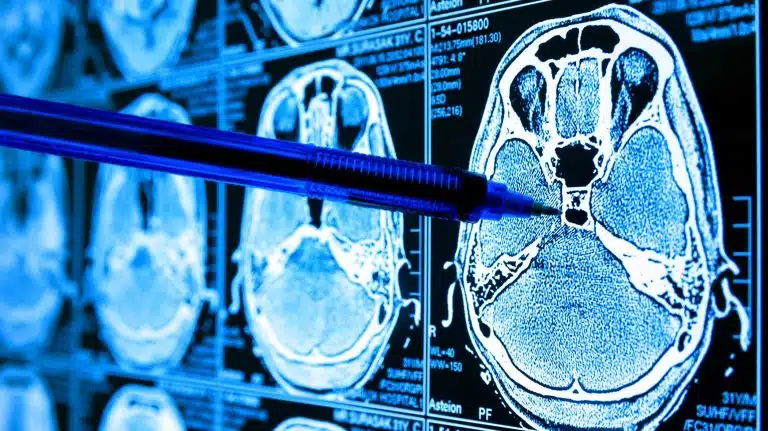Can Drinking Alcohol Kill Brain Cells?
- How Alcohol Affects The Brain
- Long-Term Effects Of Alcohol On The Brain
- Risk Factors For Alcohol-Related Brain Issues
- Alcohol Addiction Treatment

Although alcohol doesn’t specifically kill brain cells, the cells can be harmed due to alcohol-related brain damage. Excessive alcohol consumption can lead to deteriorating brain function in a variety of ways.
There are short-term and long-term effects of alcohol that can be caused not only by heavy drinking but moderate drinking as well. Ultimately, drinking alcohol can damage the brain.
How Alcohol Affects The Brain
Excessive alcohol abuse can cause damage to the end of neurons called dendrites which are located in the cerebellum. This can lead to brain shrinkage. Once this happens to the neurons, the neurotransmitters in the brain have difficulty communicating with one another.
Short-Term Effects
Large amounts of alcohol cause those who drink to experience a variety of side effects such as:
- blackouts
- brain impairment
- loss of muscle coordination
- alcohol poisoning
- memory problems
- slurred speech
Those who participate in binge drinking are more likely to experience blackouts. Heavy drinking within a short amount of time can lead to accidents such as falls, drownings, and car wrecks.
How much a person drinks likely affects the amount of brain damage a person accrues. Both short-term and long-term alcohol use can cause damage to parts of the brain.
Long-Term Effects Of Alcohol On The Brain
Those abusing alcohol for a long period of time may develop a number of issues. Some of these include:
- high blood pressure
- liver disease
- heart disease
- stroke
- permanent memory loss
Wernicke-Korsakoff Syndrome
In addition to this, severe alcohol use can create nutritional deficiencies. For instance, consuming large quantities of alcohol may cause a vitamin B1 thiamine deficiency. This neurological deficiency disorder is known as Wernicke-Korsakoff Syndrome.
Dementia Risk
Another way alcohol damages the brain is by interfering with new brain cells. Excessive alcohol intake may lead to early dementia and serious brain disorders.
Fetal Alcohol Syndrome
Pregnant women who drink alcohol can cause fetal alcohol syndrome in their infants. If this occurs, the baby may have stunted brain development or worse.
Brain Dysfunction
An acute alcohol-related brain dysfunction, encephalopathy, may occur in those who have developed alcoholic liver disease. Alcohol can cause damage to other parts of the body which can then affect the brain as well.
Risk Factors For Alcohol-Related Brain Issues
The National Institute on Alcohol Abuse and Alcoholism (NIAAA) states that there are several factors that determine how alcohol affects the brain, including:
- the person’s general health
- the amount of alcohol consumed
- the frequency of alcohol exposure
- how long a person has participated in alcohol use
- when the person first started drinking
- family history of alcoholism
- the person’s gender, age, and genetic background
Treating Alcohol Addiction
If you or a loved one participates in heavy alcohol use, professional and evidence-based healthcare is available. Substance abuse treatment programs use mental health counseling, peer support groups, detox services, and medication to address addiction and any underlying issues.
To learn more about our recovery programs, please connect with us today.
Written by Ark Behavioral Health Editorial Team
©2024 Ark National Holdings, LLC. | All Rights Reserved.
This page does not provide medical advice.
Alcohol Research and Health - Alcohol’s Effects on Brain and Behavior
National Institute on Alcohol Abuse and Alcoholism (NIAAA) - Alcoholism and the Brain
National Institute on Alcohol Abuse and Alcoholism (NIAAA) - Alcohol’s Damaging Effects on the Brain
National Institute on Alcohol Abuse and Alcoholism (NIAAA) - Alcohol’s Effects on the Body
The BMJ - Alcohol Consumption and Brain Health

Questions About Treatment?
Ark Behavioral Health offers 100% confidential substance abuse assessment and treatment placement tailored to your individual needs. Achieve long-term recovery.
100% confidential. We respect your privacy.
Prefer Texting?
Our friendly support team is here to chat 24/7. Opt out any time.







 Learn More
Learn More








